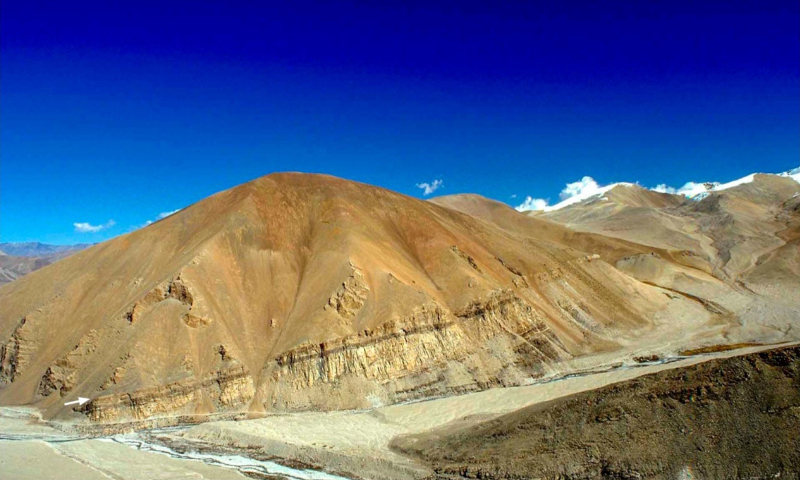Modi urges to urgently address 'prolonged situation' on borders with China

Indian Prime Minister Narendra Modi has emphasized the need to address the "prolonged situation" along the border with China to improve bilateral relations between the two countries, as stated in a recent interview with US magazine Newsweek. Chinese analysts welcomed the relatively softened and rational remarks from the Indian leader, while also cautioning that China should remain vigilant and closely monitor whether the Indian side will follow through with concrete actions.
Modi underscored that stable and peaceful relations between India and China are important for the entire region and world. "It is my belief that we need to urgently address the prolonged situation on our borders so that the abnormality in our bilateral interactions can be put behind us," Modi remarked during a wide-ranging interview with the US magazine, according to the Newsweek article published on Wednesday.
"I hope and believe that through positive and constructive bilateral engagement at the diplomatic and military levels, we will be able to restore and sustain peace and tranquility in our borders," Modi told the Newsweek.
Chinese Foreign Ministry spokesperson Mao Ning, commented during a regular press conference on Thursday that China has taken note of Prime Minister Modi's relevant remarks.
"Sound and stable China-India relations serve the interests of both countries and are conducive to peace and development in the region and beyond. The boundary question does not represent the entirety of China-India relations, and it should be placed appropriately in bilateral relations and managed properly," Mao said.
"We hope that India will work with China, approach the bilateral relations from a strategic height and long-term perspective, keep building trust and engaging in dialogue and cooperation, and seek to handle differences appropriately to put the relationship on a sound and stable track," Mao said.
Regarding Modi's statements, China should remain calm and observe their actions, Hu Zhiyong, a research fellow with the Institute of International Relations at the Shanghai Academy of Social Sciences, told the Global Times on Thursday.
India is currently in the midst of a major election period, and Modi's remarks concerning China are aimed at gaining domestic votes. They are unlikely to fundamentally resolve the border issue. In reality, India intends to use the border issue as leverage against China, and through this dispute, distort historical facts to garner sympathy and support from foreign powers, Hu warned.
Therefore, China should maintain a high level of vigilance, the expert noted, saying "on one hand, welcoming India's friendly remarks towards China, and on the other hand, making preparation for possible military struggle, and guarding against India's attempts to provoke disputes along the border.
The Indian leader's soften-toned language came in stark contrast with recent tough words byIndian External Affairs Minister S Jaishankar.
China and India held the 29th meeting of the Working Mechanism for Consultation and Coordination on India-China Border Affairs (WMCC) on March 27, with two sides vowing to continue talks through diplomatic and military channels to resolve border issues at the latest border consultation in Beijing.
The two sides made positive comments on the progress made in bringing the border situation under control, holding a "candid and in-depth" exchange of views on the next stage of work, agreeing to reach a mutually acceptable plan at an early date and ensure the border situation reaches a phase of regular control.
However, on the same day during his meeting with the Indian community in Malaysia, Jaishankar said, "my first duty to Indians is to secure the border. I can never compromise on that," according to India's NDTV.
And in response to a question after delivering a lecture at the Institute of South Asian Studies of National University in Singapore on March 23, Jaishankar called China's claims on the so-called Arunachal Pradesh "ludicrous" while asserting that the region is "a natural part of India," India's NDTV reported.
Jaishankar's erroneous claims came after a US State Department spokesperson said on March 20 that the US recognizes Arunachal Pradesh (namely Zangnan of China) as Indian territory, which China strongly condemns and firmly opposes.
Qian Feng, director of the research department at the National Strategy Institute at Tsinghua University, told the Global Times on Thursday that to some extent, Modi's remarks are aimed at adjusting the government's previous aggressive stance.
However, it should also be noted that Modi's interview was conducted with US media, indicating the possibility of deliberate posture as a major power with strategic autonomy in front of the US, Qian said.
The future direction of the border issue will continue to depend on the guidance of both countries' leadership, he said, pointing out that "China and India can and should be partners, not rivals or enemies. And the two Asian giants are development opportunities for each other."